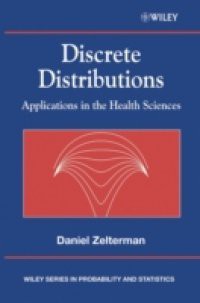There have been many advances in the theory and applications of discrete distributions in recent years. They can be applied to a wide range of problems, particularly in the health sciences, although a good understanding of their properties is very important. Discrete Distributions: Applications in the Health Sciences describes a number of new discrete distributions that arise in the statistical examination of real examples. For each example, an understanding of the issues surrounding the data provides the motivation for the subsequent development of the statistical models. Provides an overview of discrete distributions and their applications in the health sciences. Focuses on real examples, giving readers an insight into the utility of the models. Describes the properties of each distribution, and the methods that led to their development. Presents a range of examples from the health sciences, including cancer, epidemiology, and demography. Features discussion of software implementation in SAS, Fortran and R enabling readers to apply the methods to their own problems. Written in an accessible style, suitable for applied statisticians and numerate health scientists. Software and data sets are made available on the Web. Discrete Distributions: Applications in the Health Sciences provides a practical introduction to these powerful statistical tools and their applications, suitable for researchers and graduate students from statistics and biostatistics. The focus on applications, and the accessible style of the book, make it an excellent practical reference source for practitioners from the health sciences.

